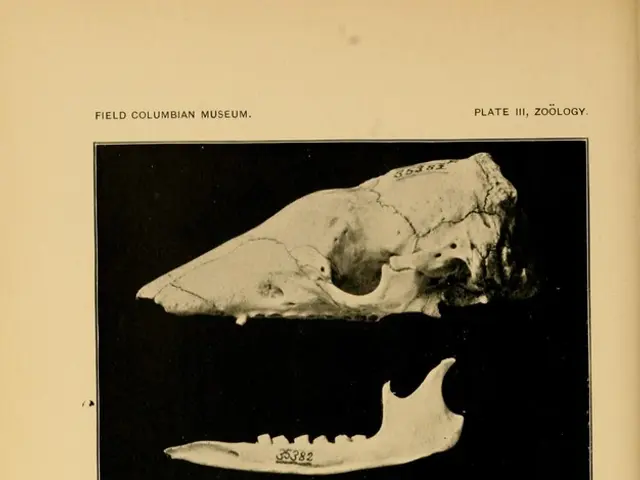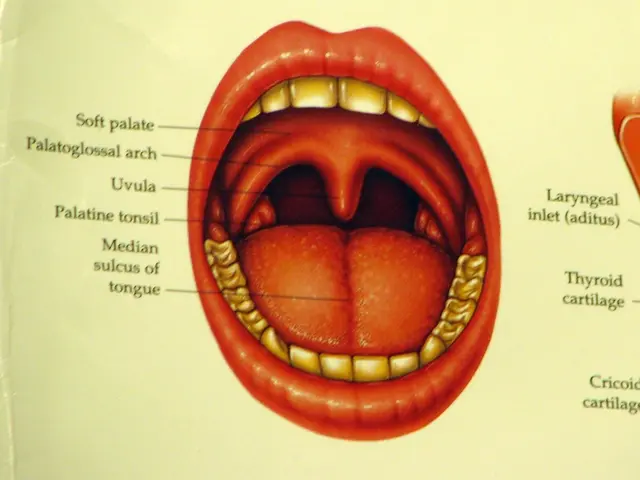Connection Between Breast and Ovarian Cancer: Causes and Risk Factors
Contagious Cancers? Think Again!
Although it might seem like breast cancer and ovarian cancer are interconnected, they aren't truly contagious. The relationship between the two mainly lies in genetic factors.
Genetic Ties
People carrying mutations in the BRCA1 and BRCA2 genes, which play a crucial role in DNA repair, face a significantly higher risk of developing both breast and ovarian cancers. These genes are like the blueprints of your cells, and when their blueprints have errors, cancer can ensue [1][2].
Breast to Ovaries
Individuals with a history of breast cancer have an increased risk of developing ovarian cancer due to their genetic background, weight issues, and hormone therapy usage [3]. In many cases, it's the genetic mutations that create this link.
Ovaries to Breasts
Surprisingly, ovarian cancer can also make you more susceptible to breast cancer, especially when family history is a factor. Again, it's often the presence of BRCA1/2 mutations that link the two diseases [4].
Sharing the Family Tree
Genetic testing for BRCA1/2 mutations is highly recommended for those with a family history of breast or ovarian cancer. This testing can identify high-risk individuals and guide preventive measures such as increased surveillance, chemoprevention, or risk-reducing surgeries [5].
Modifiable FactorsMaintaining a moderate weight, regular exercise, limiting alcohol intake, and discussing contraception options with a doctor can reduce your risk of developing breast or ovarian cancer [5].
Outlook
A 2020 study reveals a relatively favorable outlook for individuals diagnosed with both breast and ovarian cancer, with 5- and 10-year overall survival rates of around 90% [6]. The outlook depends on the gap between the two diagnoses; the wider the gap, the better the prognosis [6].
Cancer Awareness
If you're concerned about breast or ovarian cancer or have a family history of either, reach out to a healthcare professional for more information. Staying informed and proactive can lead to early detection and improved outcomes [6].
Stay informed and be vigilant! For more evidence-based information and resources on cancer, explore our dedicated hub.
[1] [https://www.ncbi.nlm.nih.gov/pmc/articles/PMC6202257/]
[2] [https://www.cdc.gov/cancer/breast/basic_info/risk_factors.htm]
[3] [https://www.cancer.net/cancer-types/ovarian-cancer/risk-factors-and-prevention]
[4] [https://www.cancer.gov/about-cancer/causes-prevention/hereditary/breast-ovarian-family-history]
[5] [https://www.mayoclinic.org/diseases-conditions/breast-cancer/in-depth/genetic-testing/art-20048337]
[6] [https://www.ncbi.nlm.nih.gov/pmc/articles/PMC7923795/]
- Despite a perceived connection, breast cancer and ovarian cancer are not contagious, with their relationship primarily attributed to genetic factors.
- Mutations in the BRCA1 and BRCA2 genes, crucial for DNA repair, significantly increase the risk of developing both breast and ovarian cancers.
- Individuals with a history of breast cancer have a heightened risk of developing ovarian cancer due to their genetic background, weight issues, and hormone therapy usage, often linked by the presence of BRCA1/2 mutations.
- Conversely, ovarian cancer can also increase the likelihood of breast cancer, particularly with family history, often related to the presence of BRCA1/2 mutations.
- Genetic testing for BRCA1/2 mutations is advisable for those with a family history of breast or ovarian cancer, helping to identify high-risk individuals and guide preventive measures.
- Modifiable factors such as maintaining a moderate weight, regular exercise, limiting alcohol intake, and discussing contraception options with a doctor can help reduce the risk of developing both breast and ovarian cancer.








